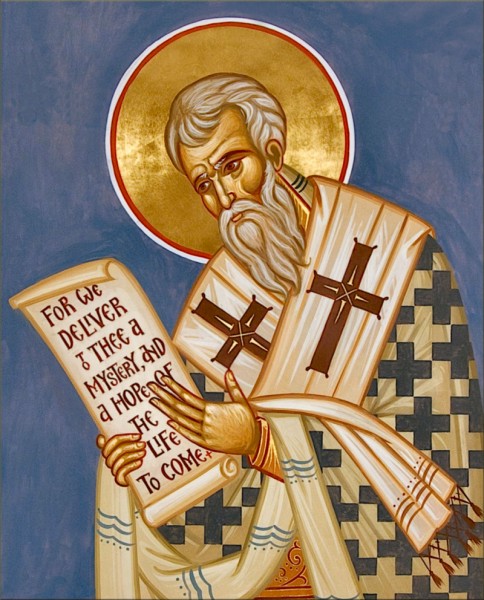God had called us out of the slavery of sin, but the human will must be strengthened to respond to this call.

You have heard, O my soul, how the waves and waters of the river formed a protective chamber for the baby Moses, allowing his basket of reeds to escape the cruel edict of the Pharaoh.
The midwives, though instructed by Pharaoh to kill the male infants of the Hebrews, obeyed their God instead.
Now that you, my hopeless soul, have been spared death like Moses, like him also be nourished on the wisdom of the Lord.
By killing the oppressive Egyptian, Moses severed his bond to Pharaoh. But you, O my hopeless soul, have not even begun to attack the wickedness of your mind.
If you have not accomplished even this much, how can you expect to pass through the time of repentance, which alone can drive away our sinful passions?
Go, my soul, and imitate the great Moses in the wilderness, that like him you may behold God present in the burning bush.
Think of the staff that Moses stretched over the waters to divide them. It is an image of the Cross of Christ whereby you, my soul, can also accomplish great things.
Aaron’s faithfulness was shown by his offering an acceptable sacrifice to God. But you, my soul, like the priests Hophni and Phineas have offered only your deceitful and selfish life.
[...] The waves of my transgressions have turned back on me, O Saviour, just as once the Red Sea turned back to engulf the Egyptian forces.
Like Israel of old you have an arrogant will, O my soul, preferring gluttony and self gratification to the manna from heaven.
The Canaanites’ wells can be likened to worldly philosophies, from which you, my soul, have preferred to drink rather than from the rock from which when struck by Moses there poured out a river of wisdom, the knowledge of God.
Like the arrogant Israelites in the wilderness, you prefer the comforts of Egypt and unclean food to manna, the food sent from heaven.
Water pouring from the rock when struck by Your servant Moses, prefigured Your life giving side, O Saviour, from which we saw the Water of Life.
Find the Promised Land and explore it secretly as Joshua, son of Nun, once did. See what kind of land it is and settle there, obeying the Law of God.
Andrew of Crete (c.650-740): The Great Canon, Tuesday of the First Week, Odes 5


